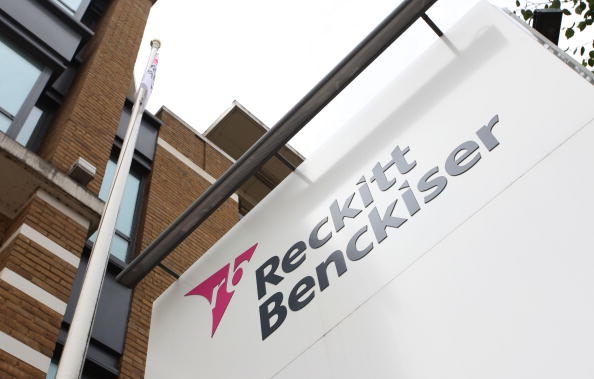Reckitt Benckiser (RB.L) is betting on connected consumer products as part of a push to show investors its innovative approach can still drive growth.
In an interview at Reckitt’s global headquarters outside London, Chief Executive Rakesh Kapoor dismissed suggestions that a recent product failure signaled Britain’s 12th most valuable company has lost its design mojo.
“Innovation for this company is cultural. It’s in our blood, in our DNA,” said Kapoor, who has a reputation for disciplined cost management, adding that detailed product pipeline reviews were conducted monthly like profit-and-loss assessments.
The group’s creative prowess is under scrutiny after last year’s poor market response to a 60 pound ($77) version of its Scholl electronic hard skin remover, which continued to hurt the company and contributed to its first-ever quarterly sales fall last month.
Even without one-time items, which also included a June cyber attack and the collapse of its South Korean business, Reckitt’s core health business slowed, Reuters reports.
Kapoor said the unit, which makes up half its annual sales following the $16.6 billion Mead Johnson purchase, remains strong and will benefit from new products.
Reckitt will next month start selling a new brand, Siti, in China and India to help protect against outdoor air pollution, and is also launching a Fever Smart temperature monitor in Australia. Both comprise pricey monitors that can send data to smartphones aimed at prompting the use of company products.
For Siti, that means face masks costing about 2 pounds each and fitted with a 20 pound vent that Reckitt says makes them perform better than existing choices. For Fever Smart, it would be a Nurofen tablet to lower a child’s fever.
Kapoor said these illustrate the new products in prospect at the maker of Durex condoms, Lysol cleaners and Mucinex cold medicine. “There is a connected innovation pipeline for all of our brands,” he said. “Think about air fresheners or pest control solutions or multipurpose cleaning.”
Despite price tags of 99 Australian dollars ($78) for the Fever Smart and 50 pounds for the Siti monitor, Kapoor thinks they will be successful because they are linked to solutions for real problems. Yet Reckitt’s foray into smart devices comes as the market for wearable gadgets slows.
CCS Insight predicts a 1 percent increase in the number of wearable gadgets shipped this year, versus 10 percent last year. “It is not a secret that demand for smart wearables has been weaker than we, or anyone else, initially anticipated,” said George Jijiashvili at the consultancy.
He noted other companies also offer pollution monitors but said they will likely have niche appeal. “Certain individuals who are very concerned about the air quality, especially those living in heavily polluted cities such as Delhi, are likely to seek out such devices”.
RBC Capital Markets analyst James Edwardes Jones said he had become more skeptical about Reckitt’s product pipeline, especially after the failed Scholl skin file.
He said greater upside may be had elsewhere in the sector, which is being rocked as activist shareholders push Nestle (NESN.S) and Procter & Gamble (PG.N) to improve returns, Unilever (ULVR.L) aims to boost performance after an aborted takeover proposal from Kraft Heinz (KHC.O) and Danone (DANO.PA) is reportedly being targeted by an activist investor.












